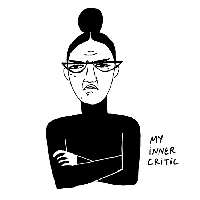Extraverted Thinking Type MBTI Personality Type
Personality
What personality type is Extraverted Thinking Type? Extraverted Thinking Type is an ESTJ personality type in MBTI, 1w2 - so/sx - 136 in Enneagram, SCOEN in Big 5, LSI in Socionics.
Destructive Te expression: I take use of my position or authority to acquire what I want, or I have the mindset that those who are weak get what they are due. Unhealthy Te expression: The problems in my life are caused by others being incompetent. Immature Te expression: My fear of ambiguity, powerlessness, and/or the impotence that comes from falling short of expectations causes me to be insecure and controlling. -Weak Te expression: Because I do not give sufficient attention to organizing the structure of my ideas, establishing worthwhile goals, and planning out the activities in my life, I have problems getting my life structured. -Healthy Te expression: I know how to reach my goals efficiently because I try to be strategic in my every action and build confidence by learning quickly from mistakes. -Optimal Te expression: I am a capable leader and a decent role model because I am aware of the appropriate method as well as the appropriate attitude toward achievement, accomplishment, and success. _______________________________________________________________ During Fi grip, Te doms are more prone to be apathetic, self-absorbed, and self-pitying. They may avoid confrontation and shirk responsibility; they may experience emotional paralysis; they may adopt a victim attitude and act as if they are constantly being persecuted. They lack the flexibility to adapt to life's unexpected turns and the moral compass and sensitivity of the best Fi doms because they are unable to let go of their ideals. The stress-induced failure of their unconscious attempts to employ Fi to compensate for Te extremes is a result of the severity of the damage that has already been done. If you want to know what it's like when you "aren't yourself," or when you're in a low point, you might need to ask others, because most people don't recognize grip behavior. -Signs of dominant Te extremes: harsh, severe, no empathy disrespects all preferences except one’s own destroys in the name of “protecting"/“perfecting” controlling and arrogant hypocritical behavior -Loss of normal and healthy dominant Te functioning: I feel as though my confidence has disappeared. I am unable to complete tasks and goals efficiently. I am at a loss about how to solve important problems. -Examples of out of character inferior Fi grip tendencies: I am tired, fed up, unmotivated, unappreciated. I can’t help feeling melancholy, reproached, rebuked. I am more withdrawn, passive, helpless, submissive. I don’t realize how much I sulk, complain, whine. I am strangely hypersensitive to “unfair” treatment. I believe I am righteous in my vengeful/vindictive thoughts. I suddenly realize and regret my hurtful/insensitive behavior. I hide away to avoid public emotional displays/breakdowns. I pity myself and make excuses instead of taking charge.
Biography
Judges information using objective metrics and collective ideas. It desires to actualize ideas into practical reality, it is utilitarian and desires empiricism in its judgement. It is result-oriented, it is oriented towards intellectual conclusions. It bases things on objective data from external sources, it arranges data into a logical formula, and expects everyone to follow that logical formula. When Extraverted Thinking (Te) represses Introverted Feeling (Fi), it manifests itself in the form of tyranny and hostility, against people that challenge or go against their logical formula.
Related Personalities

Introverted Intuition Type

Extraverted Intuition Type

Introverted Thinking Type

Introverted Feeling Type

Extraverted Sensation Type

Introverted Sensation Type

Extraverted Feeling Type
















